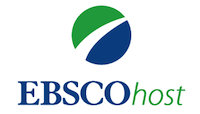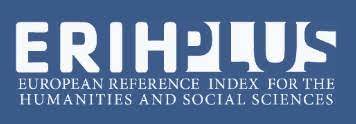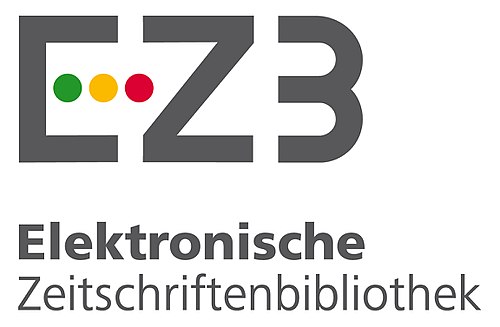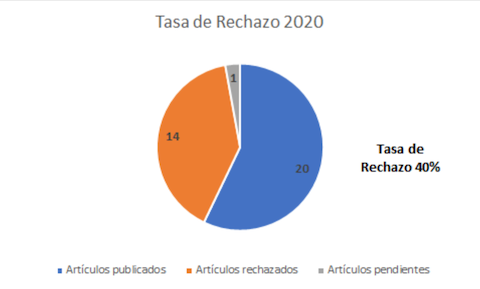Analysis of aeronautical clusters referring to the development of the Colombian aerospace cluster
DOI:
https://doi.org/10.18667/cienciaypoderaereo.560Keywords:
Colombian Aeronautical Cluster, Aeronautical Cluster, Cluster´s DevelopAbstract
Intended to foster the dynamic integration of manufacturers, operators, research centers, and services providers, aeronautical clusters have been identified as international promoters of the aeronautical industry growth in terms of technology development and business performance. That is the case of the Colombian Aerospace Cluster (CAC), that through its achievements, growth, and development has proven an indisputable leader in the aeronautical sector nationwide. With the objective of contributing to this leadership, the present article review aims to determine analytically which of the strengths and practices that have enabled seven major international aeronautical clusters to be successful around the world can be adopted by the Colombian Aerospace Cluster. The feasibility of implementing these strategies was assessed accordingly to the actual capabilities of the Colombian Aerospace Cluster demonstrated during the first half of 2016.Downloads
References
Aerocivil. (2016). Serie anual Pasajeros y Cargo. Recuperado de http://www.aerocivil.gov.co/atencion/estadisticas-de-las-actividades-aeronauticas/aeropuertos/fomns/allitems.aspx
Agencia Espacial Mexicana (AEM) (2010). Catalogo y Análisis de Capacidades de Investigación y Desarrollo Tecnológico Espacial en México. Recuperado de http://www.gob.mx/aem
Agencia Nacional de Aviación Civil ANAC. (2005). Registro Aeronáutico Brasileñol. Recuperado de: http://www.anac.gov.br/assuntos/sector-reguIado/aeronaves/rab/copy_of_rab
Aguilera, C. M. (2010). Past, present and future of the andalusian aeronautical cluster, España: Network-Centric Collaboration.
Airbus. (2009). Airbus demonstrates 40 years of innovation and shaping efficiency. Recuperado de http://search.proquest.com/docview/446139790?accountid=143348
Aircraft Fleet Recycling Association AFRA. (2005). The AFRA BMP. Recuperado de http://afraassociation.org/accreditation/the-afra-bmp/
Al Bawaba, A.B. (2015). MENA Report Recuperado de http://search.proquest.com/docview/1662312126?accountid=143348
Anand, G, & Kodali, R. (2008). Benchmarking the benchmarking models. Emerald Group Publishing Limited, 15(3), 257 - 291.
https://doi.org/10.1108/14635770810876593
Antonelli, A.C. (1999). Collective Knowledge Communication and Innovation: The evidence of technological districts. Regional Studies, 34(6), 535-547.
https://doi.org/10.1080/00343400050085657
Ariño, A.A & Mikhail, M. A, Irina, I.S, Irina, I.R & Joaquim, J.V. (1997). Partner selection and trust building in west European-Rus-sian joint ventures: a western perspective. International Studies of Management & Organization, 27(1), 19-37.
https://doi.org/10.1080/00208825.1997.11656700
ATAC, A. D. (2008). Estudio económico del transporte aéreo en Colombia 1970 - 2006. Asociación del transporte aéreo en colombio-ATAC. Bogota, Colombia.
Bónte, W. (2004). Innovation and Employment Growth in Industrial Clusters: Evidence from Aeronautical Firms in Germany. International Journal of the Economics of Business, 11(3), 259-278.
https://doi.org/10.1080/1357151042000286393
Brazilian Civil Aviation (2003). Brazilian Civil Aviation Regulation RBHA 135. Brasilia: Brazilian Regulation.
Carrasco, O. V. (2009). SCIELO. Recuperado de http://www.scielo.org.bo/scielo.php?script=sd_arttext&pid =S1726-89582009000100010
Carrillo, A. H. (2005). Diagnóstico de la industria aeroespacial en Baja California. Características productivas y requerimientos actuales y potenciales de capital humano. Baja California, México: El Colegio de la Frontera Norte.
Comercio y Aduanas. (2001). Programa de comercio exterior drawback. Recuperado de http://www.comercioyaduanas.com.mx/comercioexterior/programas/66-programas/142-programa-drawback
CONACIT. (1970). Consejo Nacional de Ciencia y Tecnología. Recuperado de http://conacyt.gob.mx/
Cooke, K. M. (1998). The associational economy: firms, regions, and innovation. Oxford, England: Oxford University Press.
De Bruecker, P, Van Den Bergh, J. (2015). A model enhancement heuristic for building robust aircraft maintenance personnel rosters with stochastic constraints. European Journal of Operational Research, 246(2) 661-673
https://doi.org/10.1016/j.ejor.2015.05.008
Durand, J. M. (2008). Aircraft maintenance organizational structure changes (Master's thesis). Air Force institute of technology. Ohio, United States of America
Economía, S. d. (2006). Industria manufacturera, maquiladora y de servicio de exportación. Recuperado de http://www.2006-2012.economla.gob.mx/comunldad-negocios/lndustria-y-comerclo/lnstrumentos-de-comerclo-exterior/lmmex
El Grupo del Banco Mundial (2014). El Grupo del Banco Mundial. Recuperado de http://datos.bancomundial.org/indicador/ IS.AIR.PSGR/countries/CO-CL-AR-PE-PA-VE?dlsplay=graph
FAA, 2. (2009). Certification procedures for products and articles. Recuperado de http://www.ecfr.gov/cgi-bin/text-¡dx?node=14:1.0.1.3.9
FAA, 3. (2002). Airworthiness directives. Recuperado de http://www.ecfr.gov/cgi-bin/text-idx?node=14:1.0.1.3.20
FEMIA. (2012). Federación Mexicana de la Industria Aeroes-pacial. Recuperado de http://www.femia.com.mx/index.php?module=femia§ion=2
García, J. A. (2005). Clústers. Recuperado de http://www.monografias.com/trabajos29/clusters/clusters.shtml
Geuna, A. A, Aldo, A.G (2001). Does proximity matter for knowledge transfer from public institutes and universities to firms? (Research) University of Sussex. London, England.
Goldstein, A. (2002). Embraer: De campeón nacional a jugador global. Revista CEPAL, 77,101-121
https://doi.org/10.18356/06218cf5-es
González, R. M. (2014). Es posible el éxito de las zonas económicas especiales. Forbes. Recuperado de https://www.forbes.com.mx/poslble-exlto-las-zonas-economlcas-especlales/.
Government of Mexico, G. o. (2003). Agreement between the Government of the united states of America. Recuperado de http//www.sct.gob.mx/flleadmln/DlrecclonesGrales/DGAC-archl-vo/modulo2/us-mexlco-ata-final-engllsh-102115.pdf.llol
Group, T. A. (2013). Mexico se une algroupo de Australia. Recuperado de http://www.australlagroup.net/es/mexico_ga.html
HELICE. (2016). HELICE, Andalucian Aerospace Cluster. Recuperado de http://helicecluster.com/es/page/organizacion-y-funcionamiento.htm
ICAO. (2009). Overview of trends and developments in international air transport. ICAO Secretariat. Recuperado de https://www.icao.int/sustainablllty/Documents/OverviewTrends.pdf
ICAO, 8. (2010). Airworthiness of aircraft. ICAO Secretariat. Recuperado de http://code7700.com/pdfs/icao_annex_8.pdf
Ingram, L. A. (2000). Knowledge Transfer in Organizations: Learning from the Experience of Others. Organizational Behavior and Human Decision Processes. 82( 1), 1 -8.
https://doi.org/10.1006/obhd.2000.2883
Jorge, J.R, Claudia, C.S, Marisol, M.A. (2015). Transporte en cifras estadísticas. Bogotá: Ministerio de Transporte.
Kehayas, N. (2007). Aeronautical technology for future subsonic civil transport aircraft. Aircraft Engineering and Aerospace Technology. 79(6), 600-610
https://doi.org/10.1108/00022660710829791
Liu, W. K. (2009). Advantage competition of inter-partner learning in international strategic alliance. Journal of Global Business Issues, 3(2), 123.
Machado, C. (Julio de 2013). Clustering the technical capability in the brazilian aeronautical maintenance industry. Recuperado de http://search.proquest.com/docview/1505321583?accountid=143348
https://doi.org/10.14807/ijmp.v4i2.101
Maldonado, A. G. (2009). Parques industriales de México. Comercio Exterior. Recuperado de http://revistas.bancomext.gob.mx/rce/magazlnes/122/6/RCE6.pdf
Media, N. (2012). AEROCENTRE. Recuperado de: http//search.pro-quest.com/docview/926944023?accountld=143348
Mesa, L. (Junio de 2016). Diagnóstico Clúster Aeroespaclal Colombiano. (A. Bello, Entrevistador). Comunicación personal.
Ministerio de Transporte. (2010). Decreto 2937 del Ministerio de
Transporte. Recuperado de https://www.secad.mil.co/sites/default/files/Decreto%202937_05%2008%202010.pdf
Mona V. Makhlja, K. K. (1997). Measuring globalization of Industries using a national Industry approach: Empirical evidence across five countries and over time. Journal of International Business Studies.
https://doi.org/10.1057/palgrave.jibs.8490115
Mora, L. A. (2013). Universidad Mariana. Recuperado de http://www.umariana.edu.co/EditorialUnimar/art-revision.pdf
Nohora Eugenia, Y C. (2002). OFFSETS: Aproximación teórica y experiencia Internacional. Bogota: Departamento Nacional de Planeación.
NSG. (2013). Nuclear Suppliers Group. Recuperado de: http://www.nuclearsuppliersgroup.org/es/
Obregón, Á. (2014). Industria aeroespacial mexicana mapa de ruta2014. Ciudad de México: D.R. ©ProMéxIco.
OMC. (2005). Informe sobre el comercio mundial. Recuperado d e https://www.wt0.0rg/s pañis h/res_s/boo ks p_s/a n re p_s/ world_trade_report05_s.pdf
Olivera, M, Cabrera, P, Bermudez, W, & Hernandez, A (2011). El impacto del transporte aéreo en la economía colombiana y las políticas públicas. Cuadernos de FEDESARROLLO. Recuperado de http://hdl.handle.net/11445/165
Ornelas, S. (2007). Sonora the largest aerospace cluster integrated in Mexico. Mexico's Aeronautical Industry takes off. Mexico Now, 42 - 46.
Otero, J. (2015). Aplicación de un modelo de regresión a análisis de los conductos de transferencia tecnológica del cluster ae-roespacial andaluz. Sevilla: Universidad de Sevilla.
PIMA. (2005). Programme for innovation and modernisation of an-dalusia. Sevilla: Consejería de Innovación Ciencia y Empresa.
Presswire, M. (2012). Normans Media Ltd. Recuperado de http://search.proguest.com/docview/123221 5089?accountid=143348
PROMEXICO. (2007). PROMEXICO Inversión y Comercio. Recuperado de http://www.promexico.gob.mx/es/mx/mapas-de-ruta
RAC, 2. (2015). Certificación de aeronaves y componentes de aeronaves. Bogotá: Aeronáutica Civil. Recuperado de: http://www.aerocivil.gov.co/AAeronautica/Rrglamentacion/RAC/ Biblioteca%20lndice%20General/RAC%20%2021 %20-%20 Certificaci%C3%B3n%20de%20aeronaves%20y%20compo-nentes%20de%20aeronaves.pdf
REDCLUSTER. (2012). CEASCOL - Cluster Aeroespacial Colombiano. Recuperado de http://www.redclustercolombia.com/clusters-en-colombia/iniciativa/130
Rosenfeld, S. (1997). Bringing business clusters into the mainstream of economic development, European Planning Studies. European Planning Studies, 5(1), 3-23.
https://doi.org/10.1080/09654319708720381
Secretaría, O. d. (2012). México ingresa al Arreglo de Wassenaar para bienes de uso dual. Recuperado de http://www.economia-snci.gob.mx/sic_php/pages/bruselas/trade_links/esp/eneesp2012.pdf
UAEAC. (2014). Plan de navegación aérea. Recuperado de http://www.aerocivil.gov.co/Aerocivil/PlanGestControl/PoliticasPla-nesProy/Programas%20y%20Proyectos%20en%20Ejecucion/PNA%20COL%2OVOL%201%2 0v07%20%20borrador.pdf
WestWorld. (28 de Mayo de 2014). SlideShare. Recuperado de http://www.slideshare.net/westworldconsulting/webinar-accessing-the-european-aerospace-market-and-supply-chain
Downloads
Published
Issue
Section
License
Assignment of Copyrights
Authors assign Ciencia y Poder Aéreo journal the exclusive rights (reproduction, distribution, public communication, and transformation) to exploit and commercialize their work, in whole or in part, in all the formats and modalities of present or future exploitation, in all languages, throughout the life of the work and throughout the world.
All contents published in Ciencia y Poder Aéreo journal are licensed under a Creative Commons Attribution 4.0 International License, whose complete information is available at http://creativecommons.org/licenses/by/4.0/
Under the terms of this license, users are free to download, print, extract, archive, distribute and publicly communicate the content of articles, provided that proper credit is granted to authors and Ciencia y Poder Aéreo, scientific journal of the Graduate School of the Colombian Air Force. Except when otherwise indicated, this site and its contents are licensed under a Creative Commons Attribution 4.0 International License.
For other uses not considered under this license it is required to contact the Director or the Editor of the journal at the e-mail address cienciaypoderaereo1@gmail.com.
The Graduate School of the Colombian Air Force and this publication are not responsible for the concepts expressed in the articles, including the metadata or the affiliation stated by authors. This is the full responsibility of the authors.






















